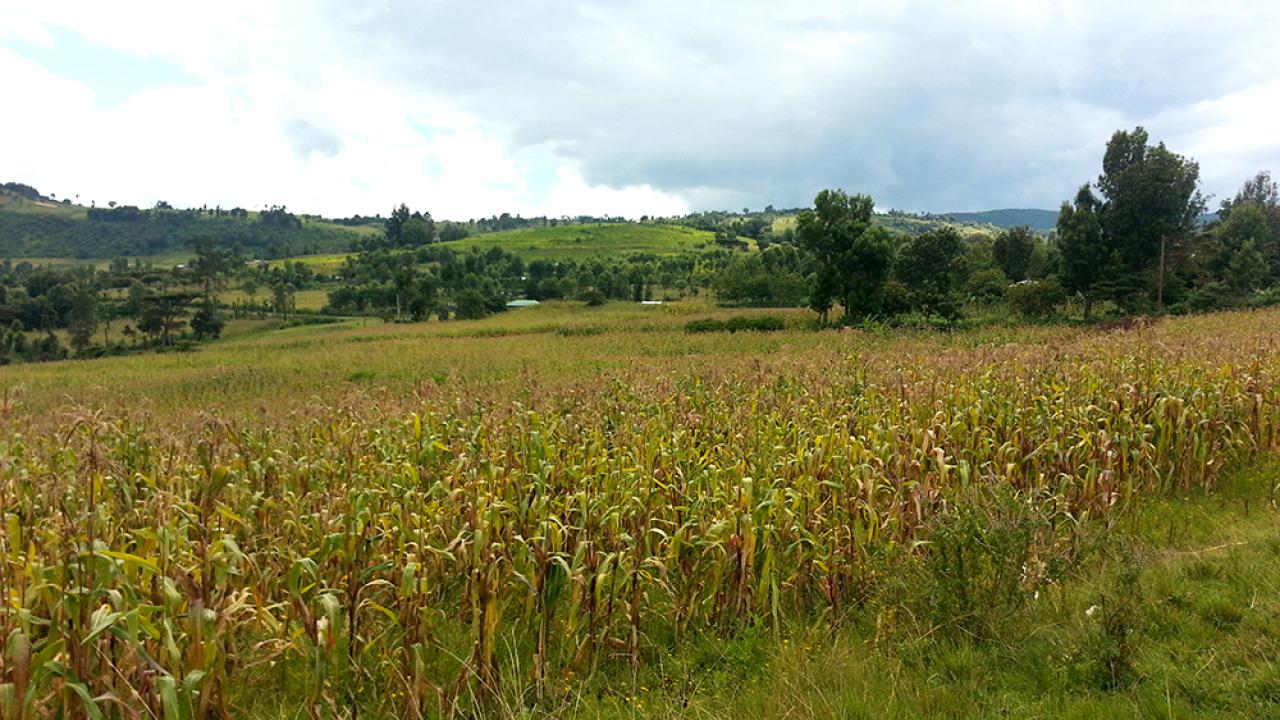
Kenya has become a worldwide leader in digital credit, but the reach and design of digital loans for small-scale farmers is not well developed. As digital lenders begin to address this market segment, the potential for digital credit to reach and meet the needs of small-scale farmers is now greater than ever before. Yet, the rise of excessive borrowing and over-indebtedness currently among lower-income households is cause for concern.
MRR Innovation Lab researchers are conducting a feasibility study in Kenya to explore a sustainable approach to extending digital credit to small-scale farmers and its potential impact on their wellbeing.
Project overview
Lead Principal Investigator: Sarah Janzen, University of Illinois
Project Partners: Acre Africa, Pezesha Africa Limited, University of Florida, University of Georgia
Development Innovation: Digital credit for agriculture
Commodity: Horticulture
Targeted Population: Small-scale farmers
Country/Location: Kenya
Timeline: 2020-2024
Funding: $31,626 (USAID)
The Challenge
Small-scale farmers in developing countries often lack the cash needed to invest in more productive inputs like improved seeds or chemical fertilizers. Agricultural credit could allow farmers to finance the higher upfront costs of more profitable crops while also preserving a buffer against unexpected shocks. However, access to agricultural credit is not yet widely available to small-scale farmers.
In recent years Kenya has become a leader in digital credit, making it possible for Kenyans to quickly access a loan from their own phones. These benefits predominately remain in urban areas with close half of urban residents having borrowed from mobile loan providers while rural mobile phone owners are only about half as likely to have done so.[1]
While digital credit could improve access to agricultural credit for small-scale farmers, low uptake rates suggest that digital loans are currently not well designed for rural borrowers or agricultural investments. These short-term loans are not built for the substantial amount of time between planting and selling a crop that is constantly at risk of failure for reasons outside a farmer’s control. They are also often not large enough to affect agricultural investment, and research has shown that relatively large loans could worsen moral hazard and adverse selection.[2]
Adding to these programmatic challenges, one third of rural families do not have enough borrowing experience to have a formal credit score—resulting in lenders relying on alternative means of credit assessment.
Despite these challenges, lenders continue to expand their market to include small-scale farmers, offering an opportunity for formal financial inclusion. Loans have the potential to deliver increased agricultural productivity and a higher standard of living. Yet, they also generate considerable risk. Loans could potentially negatively impact the wellbeing of small-scale farmers who become laden with debt.
 Feasibility Study
Feasibility Study
An MRR Innovation Lab research team is exploring avenues to evaluate the impact of digital credit tailored to the needs of small-scale farmers in Kenya. The team is collaborating with partners in the digital finance and agriculture sectors to design and offer digital agricultural loans backed by weather index insurance and that are large enough to make meaningful investments while providing the flexibility to make payments after harvesting crops.
The team will develop a rigorous evaluation plan to assess the impact of digital agricultural loans on small-scale farmers in Kenya. Traditional economic measures of farmer welfare such as income, consumption, expenditure and household assets will be collected to assess the impact of digital credit. Additional measures of farmer welfare such as food security, mental health or empowerment will also be explored.
The goal of this project comes in two parts. One is to examine the impact of digital credit on farmer wellbeing and to assess if relaxing credit constraints enables rural small-scale farmers to escape from poverty. The second is to evaluate the impact of digital credit in building the resilience of small-scale farmers, and their ability to manage risks that threaten these escapes.
Next Steps
This feasibility study includes efforts to bring together a team of stakeholders and implementing partners who are interested in the design and impact of digital credit packages for small-scale farmers. Stakeholders include banks, telecommunications companies, microfinance institutions, financial sector intermediaries, insurance companies, humanitarian organizations and agriculture sector partners. Stakeholder engagement activities during the feasibility study will help inform future research design and focus.
This feasibility study will also lay the foundation to implement a future rigorous impact evaluation to test how digital credit shifts opportunities and wellbeing for small-scale agricultural families. The full project will also include an agricultural index insurance component to leverage the complementarity of these two financial technologies.
This work builds on USAID and Feed the Future investments in Kenya, including $33 million in credit from Kenyan financial institutions to spur agricultural-led growth to micro-, small- and medium-sized enterprises. This project will complement Feed the Future’s broader efforts in Kenya to expand economic opportunities, build resilience and diversify agricultural production.
[1] Gubbins, P. et al. 2018. “Digital Credit in Kenya: Evidence from Demand-Side Surveys.” FSD Kenya.
[2] Karlan, D. et al. 2009. Observing Unobservables: Identifying Information Asymmetries with a Consumer Credit Field Experiment.” Econometrica.
